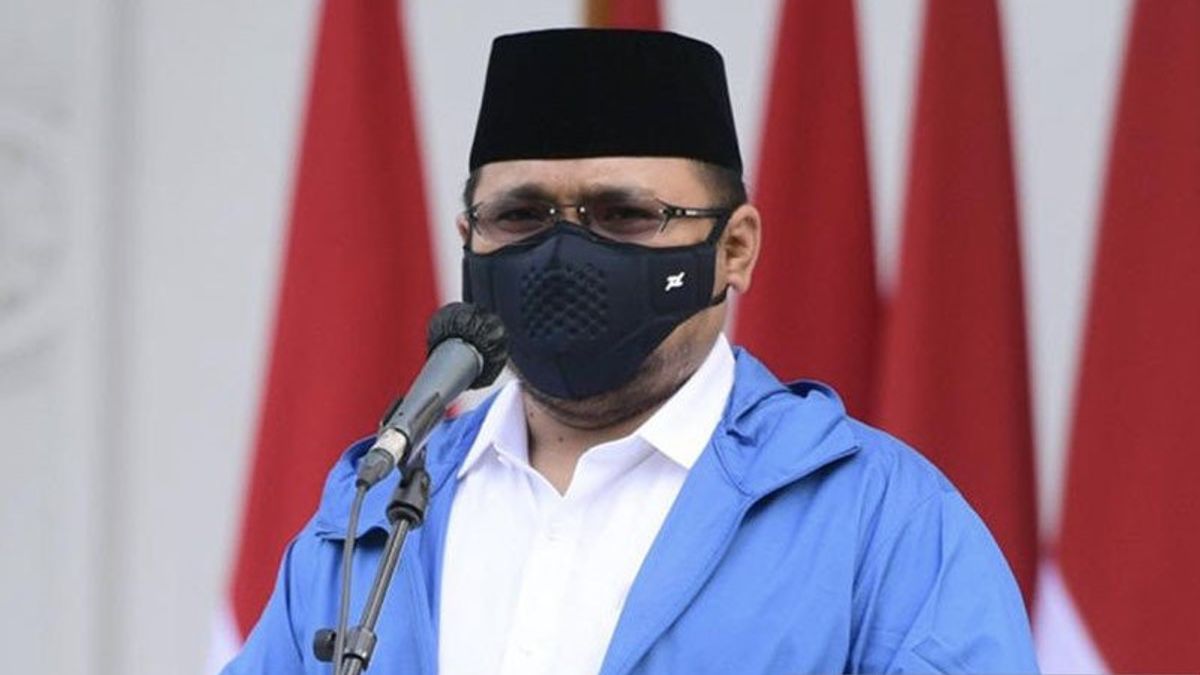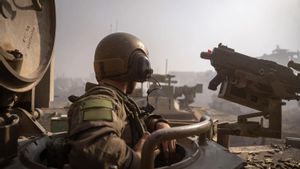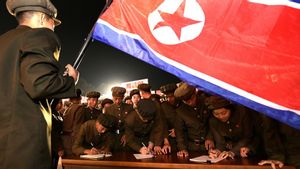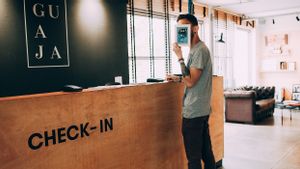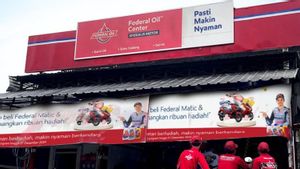JAKARTA - The government has set a policy of implementing Emergency Community Activity Restrictions (PPKM) on the islands of Java and Bali starting tomorrow, July 3 to July 20.
As a follow-up, the Ministry of Religion issued two circulars at once. First, the circular of the Minister of Religion No. SE 16 of 2021 concerning Technical Guidelines for the Implementation of Takbiran Nights, Eid Prayers, and the Implementation of Sacrifice in 1442 H/2021 AD Outside the Areas of Enforcement of Emergency Community Activity Restrictions (PPKM).
Second, the circular of the Minister of Religion No. SE 17 of 2021 concerning the Temporary Elimination of Worship in Places of Worship, Takbiran Nights, Eid Prayers, and Technical Instructions for the Implementation of Sacrifice in 1442 H/2021 AD in the Areas of Enforcement of Emergency Community Activity Restrictions (PPKM).
"These two circulars were issued as a follow-up to the Government's policy that has established Emergency PPKM in 121 regencies/cities in Java and Bali," said Minister of Religion Yaqut Cholil Qoumas in Jakarta, Friday, July 2.
The circular regulates in more detail the technical implementation, from the takbiran night to the slaughter of the qurban. This includes the temporary elimination of worship at places of worship in areas that are included in the Emergency PPKM.
"This circular is also a guide for all relevant parties in restricting activities and implementing strict health protocols on the implementation of the Takbiran Night, Eid Prayers, and the slaughter of sacrificial animals," said the Minister of Religion.
There is also the implementation of the sacrifice on Eid al-Adha must meet the following conditions:
a. The slaughter of sacrificial animals is carried out according to Islamic law, including slaughtered animals;
b. The slaughter of the sacrificial animals takes place within three days, namely on the 11th, 12th, and 13th of Dzulhijjah to avoid crowds at the location of the sacrifice;
c. The sacrificial animal is slaughtered at the Ruminata Slaughterhouse (RPH-R);
d. In the event that the number and capacity of the RPH-R are limited, the slaughter of sacrificial animals can be carried out outside the RPH-R provided that:
1) Implementation of physical distancing, including:
a) Carry out the slaughter of sacrificial animals in a large area so as to allow physical distancing to be implemented;
b) The organizers only allow the officer and the party offering the sacrifice to witness the slaughter of the sacrificial animal;
c) Implement physical distancing between officers when cutting, skinning, chopping, and packing meat;
d) The distribution of the meat of the sacrificial animal is carried out by officers to the residences of the entitled citizens;
e) The officer who distributes the sacrificial meat must wear a double mask and gloves to minimize physical contact with the recipient.
2) Implementation of health and hygiene protocols for officers and those who sacrifice:
a) Initial medical examination, namely: measuring the body temperature of the officer and the party who sacrificed at every door/entrance to the slaughtering place with a body temperature measuring device (thermogun);
b) Officers who handle slaughter, skinning, chopping meat, bones, and offal must be distinguished;
c) Every officer who slaughters, skins, chops, packs and distributes animal meat must wear a mask, long sleeved clothes, and gloves while in the slaughter area;
d) Operators should always educate officers not to touch their eyes, nose, mouth and ears, and wash their hands frequently with soap or hand sanitizer;
e) Officers avoid shaking hands or direct contact, and pay attention to coughing/sneezing/spitting etiquette; and
f) Officers who are in the slaughter area must immediately clean themselves (shower) before meeting family members.
3) Application of tool hygiene:
a) Perform cleaning and disinfection of all equipment before and after use, as well as cleaning the area and equipment after the entire slaughtering process is completed;
b) Implement a one person one tool system. If under certain conditions an officer must use another tool, then it must be disinfected before use.
The English, Chinese, Japanese, Arabic, and French versions are automatically generated by the AI. So there may still be inaccuracies in translating, please always see Indonesian as our main language. (system supported by DigitalSiber.id)
